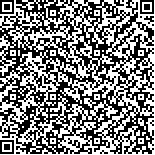基于仿生偏振光的定向方法及其误差补偿方法
2025,33(1):242-251
摘要:为了应对复杂环境下载体的自主定向需求,提出了一种基于仿生偏振光的定向方法。首先通过理论推导得出偏振度与偏振角的几何关系;其次对航向角计算算法进行改进,通过偏振光传感器输出的偏振信息以及太阳方位角、高度角,高精度求解出载体的航向角;然后对偏振光角量测模型误差及误差补偿进行理论与仿真分析,仿真结果表明,在不考虑随机噪声的情况下,经过误差补偿,偏振角的最大误差从原来的0.4269°降低到-0.1731°;而在考虑随机噪声的情况下,偏振角的最大误差经过补偿后从0.4102°降至-0.1868°。最后,通过实际车载实验得出航向角,进一步验证方法的可行性。
关键词:仿生偏振光;定向;复杂环境;偏振角;航向角
Orientation method based on bionic polarized light and its error compensation method
Abstract:In order to cope with the demand for autonomous orientation of carriers in complex environments, an orientation method based on bionic polarized light is proposed. Firstly, the geometric relationship between polarization degree and polarization angle is derived through theoretical derivation; secondly, the heading angle calculation algorithm is improved, and the carrier's heading angle is solved with high accuracy by the polarization information output from the polarized light sensor, as well as the sun's azimuth and altitude angle; then, the polarization angle measurement model error and error compensation are analyzed theoretically and simulatively, and the simulation results show that the maximum error of the polarization angle is reduced from 0.4269° to -0.1731° after the error compensation, without considering the random noise. The simulation results show that, without considering the random noise, the maximum error of the polarization angle is reduced from 0.4269° to -0.1731° after the error compensation; while in the case of considering the random noise, the maximum error of the polarization angle is reduced from 0.4102° to -0.1868° after the compensation. Finally, the heading angle is derived from actual on-board experiments to further verify the feasibility of the method.
Key words:Bionic polarized light,orienting and posturing,complex environment,polarization angle,heading angle
收稿日期:2024-10-16
基金项目:河北省重大科技成果转化专项
